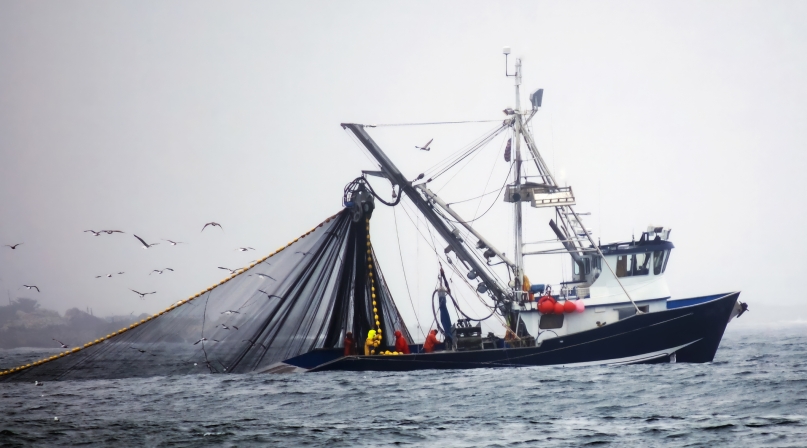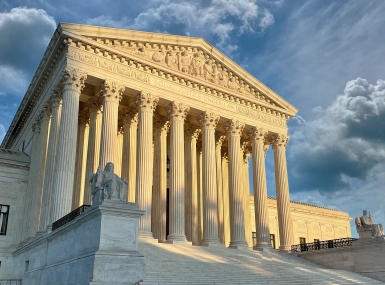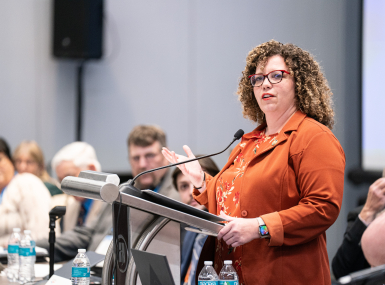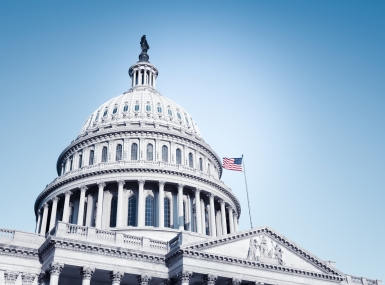U.S. Supreme Court overturns the Chevron doctrine to reshape the federal administrative state
Author
Upcoming Events
Related News

Key Takeaways
On July 1, the U.S. Supreme Court issued a 6-3 decision in Loper Bright Enterprises v. Raimando and its companion case Relentless v. Department of Commerce that will fundamentally reshape the balance of power between federal agencies, Congress and the Courts. The ruling overturns the Chevron doctrine, precedent established in the 1980’s that directed the courts to defer to the expertise of federal agency’s “reasonable” interpretation of a law if the statute is ambiguous or silent. Considered one of the most important rulings in federal administrative law, Chevron has been cited by federal courts more than 18,000 times.
- Background: In Loper Bright, the Court considered whether the National Marine Fisheries Services, which requires herring industry vessels to have an observer on board to perform conservation oversight, could pass the cost of those observers onto the fishing companies themselves in the absence of federal funding. The D.C. Circuit Court ruled that because Congressional statute was silent on the matter, the Fisheries’ regulation would hold under the Chevron deference doctrine. The fisheries appealed the matter to the Supreme Court.
- The Court’s Ruling: The Court overturned the D.C. Circuit’s decision and in so doing struck down the Chevron precedent. The ruling represents a major shift in the administrative state. Rather than deferring to agency expertise in interpreting Congressional intent, the judiciary will exercise final say over matters in which the statute is unclear or silent.
- Mixed Impact on Counties: Under Loper Bright, County governments will likely have greater opportunity to overturn burdensome regulations and influence implementation of federal policy through legal challenges. However, by giving final say to the courts, this ruling may undermine uniformity in the application of federal laws and instead lead to significant regional variation. Federal lawmakers may also shift their approach to the legislative process, opting for far greater specificity to reduce the potential for judicial interference.
Alongside Loper Bright, the Court’s 6-3 decision in Corner Post, Inc. v. Board of Governors of the Federal Reserve System significantly expands the time frame for legal challenges to federal agency rulemaking, further exposing federal regulators to increased litigation. Taken together, the two rulings will have lasting repercussions for the federal administrative state.
2024-2025 Supreme Court Term

NACo Legal Advocacy: Ames v. Ohio Department of Youth Services
As one of the largest employers in the country, counties have a significant interest in cases like Ames v. Ohio Department of Youth Services (Ames v. Ohio) that could expand county liabilities as employers.

NACo Legal Advocacy: City of Seattle et al. v. Kia/Hyundai
The question at hand in City of Seattle et al. v. Kia/Hyundai is whether or not the Federal Motor Vehicle Safety Standard preempts state tort claims brought forth by local governments alleging that Kia and Hyundai’s failure to install “reasonable” anti-theft technology constitutes negligence and public nuisance.

NACo Legal Advocacy: Perttu v. Richards
Perttu v. Richards has implications on the Prison Litigation Reform Act (PLRA) and could increase the amount of Section 1983 inmate-initiated cases against county jails that reach federal court, ultimately resulting in counties having to expend resources on frivolous lawsuits.

NACo Legal Advocacy: McLaughlin Chiropractic Associates, Inc. V. McKesson Corporation
McLaughlin Chiropractic Associates, Inc. V. McKesson Corporation could make it more difficult for counties to challenge FCC orders, many of which have taken steps to preempt and curtail local authority by limiting counties’ abilities to manage their own right of way and assess fair market value permitting and impact fees on providers seeking to construct, modify or extend telecommunications infrastructure in their communities.

NACo Legal Advocacy: San Francisco v. Environmental Protection Agency (EPA)
San Francisco v. Environmental Protection Agency (EPA) has implications for the ability of county governments that own and operate wastewater treatment facilities to comply with National Pollutant Discharge Elimination System (NPDES) permit requirements.

NACo Legal Advocacy: Lackey v. Stinnie
Lackey v. Stinnie will impact the ability of state and local governments to avoid paying litigation fees in a civil rights case if they change their conduct (i.e. repeal a law) after a court has granted a preliminary injunction.

NACo Legal Advocacy: Garland v. VanDerStok
Garland v. VanDerStok has implications for the ability of county law enforcement to uphold public safety and investigate crimes involving ghost guns.

NACo Legal Advocacy: Stanley v. City of Sanford
Stanley v. City of Sanford will impact the ability of county governments to balance budgets by reducing or eliminating post-employment benefits for disability retirees.

NACo Legal Advocacy: EMD Sales, Inc. v. Carrera
EMD Sales, Inc. v. Carrera could make it more difficult for county governments to prove exemptions under the Fair Labor Standards Act (FLSA), which would increase the potential for costly litigation.

NACo Legal Advocacy: Federal Communications Commission, et al v. Consumers' Research, et al
Federal Communications Commission, et al v. Consumers’ Research, et al. (FCC v. Consumers’ Research) could jeopardize what is known as the Universal Service Fund (USF). Through the USF, the FCC has provided billions of dollars to local governments and our residents, helping provide essential telecommunications and broadband services to unserved and underserved communities. FCC v. Consumers’ Research challenges the FCC’s legal authority behind the USF, putting multiple programs essential to equitable broadband deployment at risk.
Featured Initiative
Supreme Court Advocacy Hub




